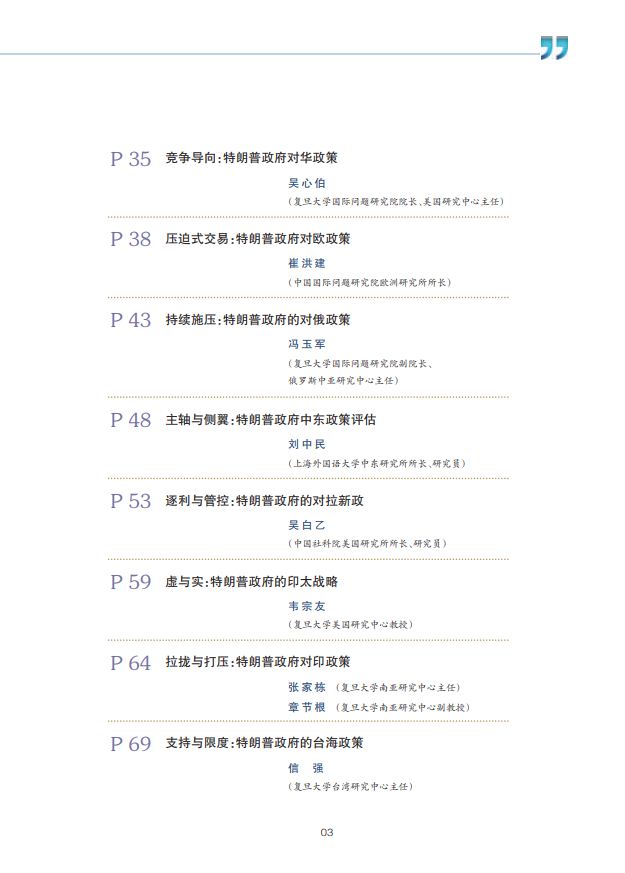Trump's Trade Policies And The Future Of US Financial Primacy

Table of Contents
The Impact of Tariffs and Trade Wars on Global Trade
Trump's trade policies were characterized by a significant increase in tariffs and the initiation of several trade wars. Understanding the consequences of these actions is crucial to assessing their long-term impact.
Escalation of Trade Tensions
The Trump administration imposed tariffs on a wide range of goods, including steel, aluminum, and various products from China. These actions significantly escalated trade tensions globally.
- Steel and Aluminum Tariffs: Tariffs of 25% on steel and 10% on aluminum, initially targeting several countries but notably impacting Canada, Mexico, and the European Union. This led to immediate retaliatory measures.
- Tariffs on Chinese Goods: The Trump administration imposed tariffs on hundreds of billions of dollars worth of Chinese goods, targeting various sectors, including technology, manufacturing, and agriculture. This drastically altered trade flows between the two largest economies.
- Quantifiable Data: Studies by organizations like the Peterson Institute for International Economics showed a significant reduction in global trade volume following the imposition of these tariffs, disrupting established supply chains and impacting economic growth worldwide.
Retaliatory Measures and Their Consequences
The imposition of US tariffs provoked immediate retaliatory measures from affected countries. These responses further complicated global trade and negatively impacted US businesses and consumers.
- Retaliatory Tariffs: China, the EU, Canada, and Mexico, among others, imposed retaliatory tariffs on US goods, affecting American agricultural exports, manufactured products, and other sectors.
- Impact on US Industries: The agricultural sector, particularly soybean and pork producers, experienced significant losses due to retaliatory tariffs from China. The manufacturing sector also faced challenges due to increased input costs and reduced market access.
- Economic Slowdown: The trade war contributed to increased uncertainty and slower economic growth, both domestically and globally. Some studies linked the trade disputes to job losses in specific US industries.
The Shifting Global Trade Landscape
Trump's trade policies fundamentally altered the global trade landscape, potentially weakening established multilateral trade agreements and accelerating the shift towards regional trade blocs.
- Impact on WTO Agreements: The Trump administration's approach challenged the authority of the World Trade Organization (WTO) and its dispute settlement system, raising concerns about the future of multilateral trade governance.
- Changes in Global Supply Chains: Companies began diversifying their supply chains to reduce reliance on specific countries, leading to increased production costs and potential disruptions.
- Regional Trade Agreements: The emphasis on bilateral deals rather than multilateral agreements contributed to the rise of new regional trade pacts, potentially reshaping the global trading system.
The Dollar's Role and the Future of US Financial Primacy
Trump's trade policies had significant implications for the US dollar's role as the world's reserve currency and the future of US financial primacy.
The Dollar's Hegemony Under Pressure
The aggressive trade actions and resulting uncertainty cast doubt on the stability of the US economic system, potentially weakening the dollar's dominance.
- Reduced Reliance on the Dollar: Some countries began exploring alternatives to the dollar for international transactions, looking towards the euro, the Chinese yuan, or even cryptocurrency as potential alternatives.
- Rise of Alternative Payment Systems: Initiatives to reduce reliance on the SWIFT system, the global messaging system for international payments, gained momentum, potentially challenging the dollar's central role in global finance.
- Impact on US Debt and Interest Rates: Increased uncertainty about US trade policy and its economic consequences could affect investor confidence, potentially impacting US debt levels and interest rates.
Increased Uncertainty and Investor Sentiment
The unpredictable nature of Trump's trade policies created significant uncertainty in financial markets, negatively affecting investor sentiment and capital flows.
- Stock Market Volatility: Periods of heightened trade tensions were accompanied by increased volatility in the US stock market, reflecting investor anxieties about the economic outlook.
- Impact on Foreign Direct Investment: Uncertainty deterred foreign direct investment (FDI) into the US, as businesses hesitated to commit capital in a volatile environment.
- Flight to Safety: Investors sought safer assets during periods of trade uncertainty, potentially leading to capital outflows from emerging markets and increased demand for US Treasury bonds.
Long-Term Implications for US Financial Institutions
Trump's trade policies posed significant challenges to the long-term competitiveness of US financial institutions in the global market.
- Impact on US Banks and Financial Services Companies: Increased global trade friction and uncertainty could reduce the profitability and competitiveness of US banks and financial services firms operating internationally.
- Potential for Decreased Market Share: The shift towards alternative currencies and payment systems could lead to a reduction in the market share of US financial institutions in global markets.
- Impact on US Financial Innovation: Uncertainty could hinder innovation in the US financial sector, as companies prioritize risk mitigation over long-term investment in new technologies and services.
Conclusion
Trump's trade policies represent a significant departure from previous administrations, leaving a complex legacy on US financial primacy. While some argue these policies were necessary to protect American interests and rebalance trade, others contend they inflicted significant damage on global cooperation and the long-term strength of the US dollar. The future impact on US financial dominance will continue to unfold, requiring close monitoring of global trade patterns, geopolitical shifts, and the overall health of the US economy. Further research and analysis of Trump's trade policies and their continuing effects are crucial to understanding the future of US financial primacy and navigating the evolving global economic landscape. Continue to explore the complexities of Trump's trade policies and their lasting impact on the global financial system.

Featured Posts
-
 Rapid Police Response After Fsu Security Breach Did It Quell Student Fears
Apr 22, 2025
Rapid Police Response After Fsu Security Breach Did It Quell Student Fears
Apr 22, 2025 -
 Us And South Sudan Partner To Manage Deportees Return
Apr 22, 2025
Us And South Sudan Partner To Manage Deportees Return
Apr 22, 2025 -
 1 Billion On The Line Harvard And The Trump Administrations Conflict
Apr 22, 2025
1 Billion On The Line Harvard And The Trump Administrations Conflict
Apr 22, 2025 -
 Google Faces Further Scrutiny Doj Returns To Court
Apr 22, 2025
Google Faces Further Scrutiny Doj Returns To Court
Apr 22, 2025 -
 Razer Blade 16 2025 Ultra Thin Laptop Review Performance And Price Analysis
Apr 22, 2025
Razer Blade 16 2025 Ultra Thin Laptop Review Performance And Price Analysis
Apr 22, 2025
